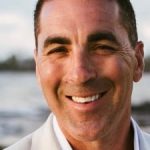We Effectively Treat Sleep Disorders
If you have questions about admissions, call 1-800-270-1389 or send us a message.
Sleep disorders affect millions of people in different ways across all socio-economic sectors and age groups. Whether it is a lack of it or too much, continuous sleep disruption or unnaturally long sleep will wreak havoc on the body and the mind and have an impact on quality of life, work and relationships. Ongoing sleep disorders create unnatural rhythms that make it difficult to adjust or revert to a normal, healthy cycle of sleep. Much of the nation is sleep-deprived as it is – from overwork, long hours, childrearing, caregiving, or the lure of the endless available content on electronic devices that keep us up at night, sometimes all night long. The endless lure of games, apps, social media or streaming keeps people glued to their phones and tablets when sleep remains elusive or impossible. This creates other issues (social media addiction and overstimulation) that fuel an already difficult situation. Catching up on sleep is an idea if not a myth. Oversleeping doesn’t solve the problem. We are collectively exhausted.
According to the CDC (Centers for Disease Control and Prevention) the lack of sleep in America is a health epidemic. An average, healthy adult requires between seven and nine hours of sleep. The reality is that 30% of Americans regularly sleep less than six hours a night. Of high school students, that same percentage gets eight hours of a sleep on a school night. Essentially, at least one third of our population is sleep-deprived. They are operating machinery and vehicles, are in school learning, or making decisions that affect or change lives. They are doing it under the influence of exhaustion.
More than one third of Americans rate their quality of sleep as “poor” or barely “fair”. The American Psychiatric Association estimates that more than 50 million Americans suffer from or meet the criteria for some type of sleep disorder. Long-term sleep deprivation or disrupted sleep is unhealthy. It can cause everything from reduced mental acuity, problems with thinking, memory and concentration along with moodiness, shortened tempers and decreased attention span, fatigue and depression. Statistical data (from 2013) indicates that 72,000 car crashes and 800 deaths occurred due to drowsy driving. Falling asleep at the wheel is no longer a colloquialism. It is the result of this dangerous truth.
Sleep Disorders Often Lead to Addiction
For those who know that they suffer from sleep disorders, self-medication is often the first choice to try to deal with or ‘cure’ it. People may think alcohol or sleeping pills are the solution, but continued use may end up creating a secondary problem that is equally dangerous: substance misuse. Continued drug or alcohol use coupled with a sleep disorder can potentially cause or lead to a co-occurring disorder (also known as Dual Diagnosis). Learn more about Dual Diagnosis and how we treat it here.
1 Method is a leader in customized care (the most effective approach to treatment). We tailor plans that are specific to your issues and meet your needs. We don’t cut corners or follow a one-size-fits-all model. Our 1-on-1 treatment programs and integrative care model is as unrivaled in quality as you are because we begin with the respect and understanding that there is only one YOU.
Learn More
Continue exploring our programs by reading through our site. Call us with any questions or send us a message. We’re here for you anytime.

